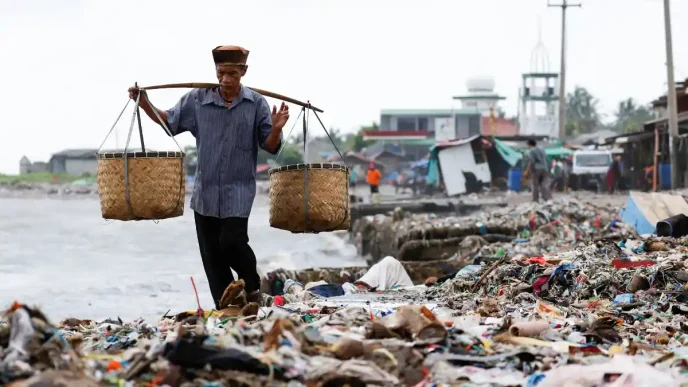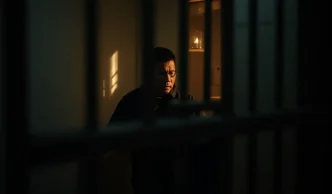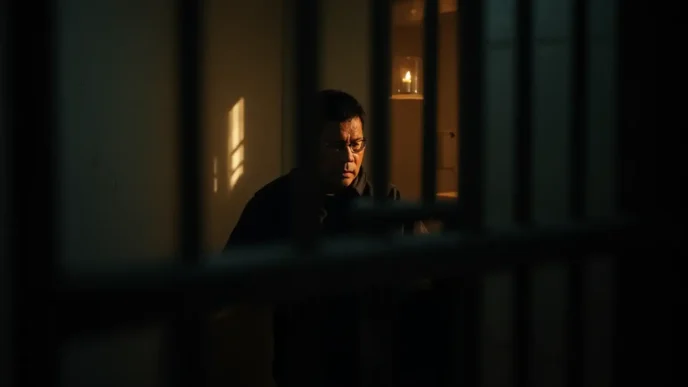In a chilling case that has gripped Vietnam, the People’s Court of Dong Nai province in the south of the country has sentenced a former doctor to death for the gruesome murder and dismemberment of his lover. Danh Son, a 37-year-old ex-surgeon at Dong Nai General Hospital, was found guilty of a crime described by the court as “exceptionally brutal,” sparking renewed discussions about ethics in the medical profession and the severity of capital punishment in Vietnam.
On Tuesday, the trial panel delivered its verdict, concluding that Son had deliberately killed 38-year-old T.T.B.N., a resident of Bien Hoa City, by injecting her with a lethal dose of sleeping medication before dismembering her body into 11 parts. In addition to the death penalty for murder, Son received four years imprisonment for robbery and two years for possessing and transporting military weapons, discovered during a police search of his home.
The court’s decision to impose the harshest possible penalty underscored the gravity of the crime, with the judges noting that Son’s actions warranted “permanent removal from society.” The absence of any compensation demands or acceptance from the victim’s family meant no mitigating circumstances were considered in the sentencing.
A Calculated Crime
According to the indictment by the Dong Nai Provincial People’s Procuracy, Son, who was married at the time, had been engaged in an extramarital affair with N. The relationship took a deadly turn when N. informed Son that she was pregnant and demanded he take responsibility. Fearing exposure to his family and workplace, Son devised a plan to silence her.
The court heard how Son lured N. to his office at Dong Nai General Hospital in Bien Hoa City under false pretences. There, he secretly administered ten vials of sleeping medication through an IV drip, an amount far exceeding a safe dosage. Once N. fell into a deep sleep, Son used a knife to dismember her body, later disposing of the parts in vacant lots across An Binh Ward in Bien Hoa City and Thien Tan Commune in Vinh Cuu District.
Further compounding the horror, Son admitted to taking nearly VND50 million (approximately US$2,000) worth of cash and gold from the victim after the murder. During the investigation, authorities also uncovered a revolver and five bullets classified as military weapons at his residence, leading to additional charges.
Claims of Desperation Rejected
During the trial, Son attempted to justify his actions, claiming he had no initial intention to kill N. He testified that his goal was merely to put her into a coma to access her phone and delete evidence of their affair. However, the excessive dosage of medication led to her death. “I sat there for over 30 minutes after N. died, thinking. Then I decided to dismember the body to dispose of the evidence,” Son admitted in court, adding that he wanted two weeks to settle family matters before turning himself in.
Son also alleged that N. had repeatedly threatened him, demanding that he force his pregnant wife to terminate her pregnancy or face harm. He claimed the items taken from N. were not for personal gain but were intended to be returned to her father. However, the court dismissed these explanations as “one-sided,” pointing out that the victim could no longer confirm or refute his account.
“The dismemberment, the drug injections, and the preparation of tools—did these things happen or not?” the presiding judge challenged Son during the trial. The court ultimately concluded that Son had intended to kill N. from the outset, as evidenced by the lethal dose of medication and the act of slitting her throat before dismemberment. Faced with the weight of the evidence, Son bowed his head and pleaded guilty.
Broader Implications
The case has sent shockwaves through Vietnamese society, raising questions about trust in medical professionals and the ethical boundaries of personal conduct. Son’s position as a surgeon at a public hospital amplified public outrage, with many expressing concern over how someone entrusted with saving lives could commit such a heinous act. On social media platforms, sentiments ranged from calls for stricter oversight of medical practitioners to debates over the morality of the death penalty in Vietnam, where capital punishment remains legal for serious crimes like murder and drug trafficking.
Vietnam’s legal system, rooted in a combination of civil law traditions and socialist principles, often imposes severe penalties for crimes deemed to threaten social order. The death penalty, typically carried out by lethal injection since 2011, is reserved for the most egregious offences. While exact figures on executions are not publicly disclosed, rights groups estimate that dozens are carried out annually. Critics argue that such punishments do little to deter crime, while supporters maintain they are necessary to protect society from extreme violence.
In Dong Nai, a rapidly industrialising province near Ho Chi Minh City, the case has also drawn attention to the pressures of modern life and personal relationships in urbanising areas. Affairs and their fallout, while not uncommon, rarely escalate to such violent extremes. The brutality of N.’s murder has left a lasting mark on the community, with local residents expressing grief and disbelief over the tragedy.
A Family’s Loss and a Nation’s Reflection
For N.’s family, the trial’s outcome offers little solace. The refusal to accept compensation reflects a deeper wound, one that no legal verdict can heal. The court’s emphasis on the irreversible loss of N.—who can no longer speak for herself—served as a poignant reminder of the human cost at the heart of this case.
As Vietnam grapples with this disturbing incident, the sentencing of Danh Son stands as a stark warning of the consequences of unchecked personal conflicts and moral failings. Whether the death penalty will serve as a deterrent or merely close a tragic chapter remains a matter of intense debate. For now, the memory of N. and the horror of her death linger in the public consciousness, a sombre call for reflection on justice, ethics, and the value of human life.














